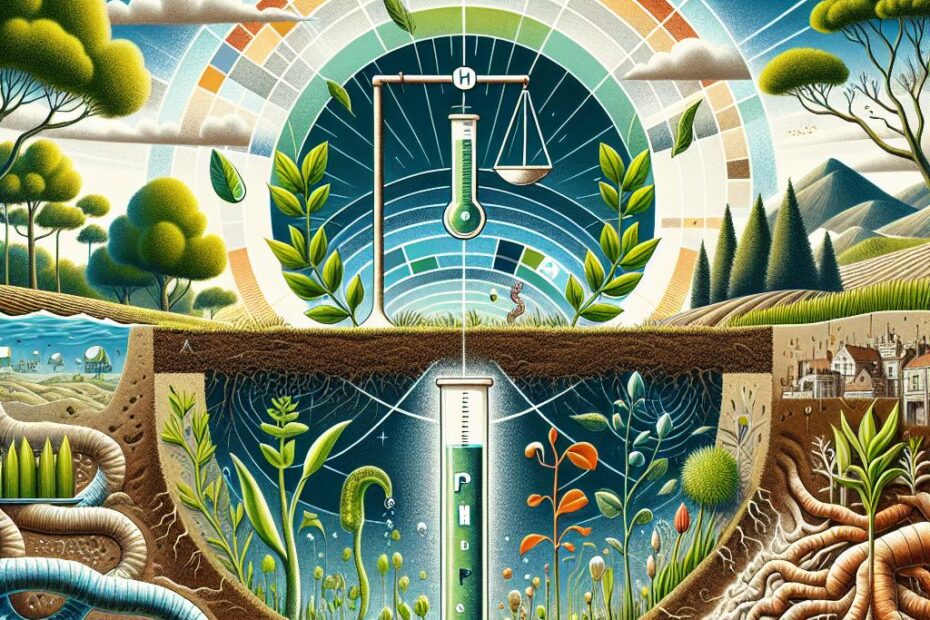When it comes to cultivating a successful garden or growing healthy crops, one of the most important factors to consider is the pH of the soil. Soil pH plays a crucial role in plant growth and development, as it influences the availability of essential nutrients to plants. In this article, we will delve into the importance of soil pH, why it matters, and how you can ensure that your soil is properly balanced for optimal plant growth.
What is Soil pH?
Soil pH is a measure of the acidity or alkalinity of the soil. The pH scale ranges from 0 to 14, with 7 being considered neutral. A pH lower than 7 indicates acidic soil, while a pH higher than 7 indicates alkaline soil. Most plants prefer a slightly acidic soil pH, typically between 6 and 7.
Why is Soil pH Important?
The pH of the soil affects the availability of nutrients to plants. Different nutrients become more or less available to plants depending on the soil pH. For example, in acidic soils, nutrients like aluminum, manganese, and iron can become more available and toxic to plants. On the other hand, in alkaline soils, nutrients like phosphorus, calcium, and magnesium may become less available to plants.
Benefits of Proper Soil pH
Maintaining the proper soil pH is essential for several reasons:
-
Optimal Nutrient Uptake: When the soil pH is within the ideal range for a specific plant, it ensures that the plant can efficiently absorb essential nutrients from the soil.
-
Preventing Nutrient Deficiencies and Toxicities: By keeping the soil pH balanced, you can prevent nutrient deficiencies or toxicities that may hinder plant growth and health.
-
Healthy Microbial Activity: Soil pH also affects the activity of beneficial soil microbes that play a crucial role in breaking down organic matter and releasing nutrients for plant uptake.
-
Disease Prevention: Some plant diseases thrive in soils with imbalanced pH levels. Maintaining the proper soil pH can help prevent diseases and promote overall plant health.
Practical Tips for Managing Soil pH
To ensure that your soil has the proper pH for healthy plant growth, consider the following tips:
-
Test Your Soil: Start by testing your soil pH using a soil test kit or by sending a sample to a local extension office. This will help you determine the current pH level of your soil.
-
Adjust pH as Needed: Depending on the test results, you may need to adjust the soil pH. Adding lime can help raise the pH of acidic soils, while sulfur can help lower the pH of alkaline soils.
-
Monitor pH Regularly: Soil pH can change over time due to factors like fertilization, rainfall, and microbial activity. Regularly monitor the pH of your soil to ensure it remains within the optimal range for your plants.
-
Choose pH-Adaptable Plants: If you have extreme pH conditions in your soil, consider planting species that are more tolerant to those conditions.
Case Study: pH Levels in a Vegetable Garden
In a recent study conducted on a vegetable garden, researchers found that the pH of the soil significantly impacted the yield and quality of the crops. The researchers tested the soil pH in different plots and adjusted the pH levels accordingly. The plots with the optimal pH levels produced healthier plants and higher yields compared to those with imbalanced pH levels.
Conclusion
In conclusion, the pH of the soil is a critical factor that can greatly impact plant growth and development. By maintaining the proper soil pH, you can ensure that your plants have access to essential nutrients, promote healthy microbial activity, and prevent nutrient deficiencies and toxicities. Regularly testing and monitoring the pH of your soil, as well as making necessary adjustments, can help you create an ideal growing environment for your plants. Remember, a balanced pH is the key to a thriving garden or crop yield.
